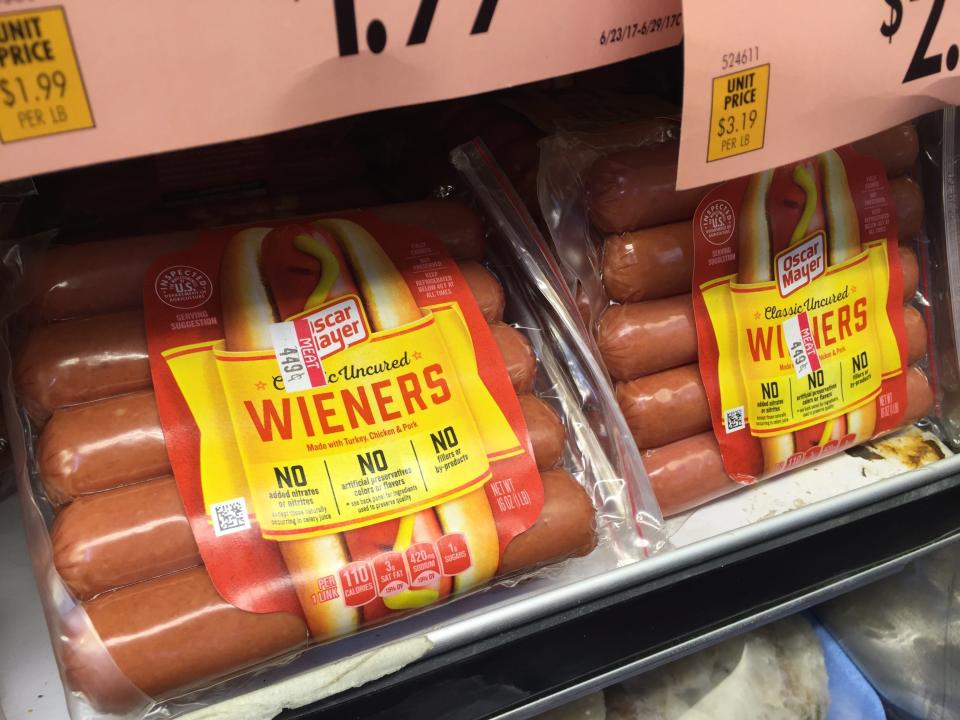Kraft Heinz has two glaring issues for investors
ESG investing — the concept of picking stocks based on environmental, social and governance scores — may sound like a mere buzzword, in the same vein as CSR (corporate social responsibility).
But for Nuveen Asset Management, a division of TIAA-CREF, investing according to ESG factors helped it avoid a big consumer name that plummeted last month: Kraft Heinz.
Kraft Heinz (KHC) shares went off a cliff in February after the company announced a $15.4 billion writedown in the value of its core Kraft and Oscar Mayer brands. In the same earnings report, Kraft Heinz disclosed that it was the target of an SEC investigation for its accounting practices.
The news dump stunned investors and led Warren Buffett, four years after Berkshire Hathaway (BRK-A, BRK-B) teamed with cutthroat Brazilian investment firm 3G Capital to merge Kraft with Heinz, to acknowledge, “We overpaid for Kraft.”
Now Martin Kremenstein, head of ETFs (exchange traded funds) at Nuveen, tells Yahoo Finance that Nuveen avoided putting Kraft Heinz in its ESG-themed ETFs because the company failed the ESG test on two factors.
“There were two things. Ninety percent of its revenue comes from markets that are moving away from processed foods,” he says. “But actually the thing that really separated it from the rest of the food industry was under governance: the board is stacked with 3G executives, Berkshire Hathaway executives, and ex-Kraft executives. There’s no independent effective oversight. And I think we saw that the other week.”

Indeed, the Kraft Heinz board of directors has 11 members, including three co-founders of 3G Capital (Chairman of the Board Alexandre Behring, Jorge Paulo Lemann, and Marcel Telles), one current Berkshire executive (Tracy Britt Cool), one current Berkshire board member (Gregory Abel), and former Kraft CEO John Cahill.
Berkshire and 3G are extremely cozy: the two firms also teamed up on Burger King’s buyout of Tim Hortons. A new class action lawsuit accuses Kraft Heinz CEO Bernardo Hees and 3G of hiding the problems at Kraft Heinz and defrauding investors; it points to the fact that 3G sold off $1.2 billion of Kraft Heinz stock six months before the writedown news tanked the stock last month.
The Kraft Heinz board is an example of lack of diversity of a different type from the one usually criticized these days in corporate America: lack of diverse corporate backgrounds. It is also an example of a failing, in Nuveen’s eyes, based on the third pillar of ESG, governance, which is not commonly the first one in the acronym that people remember.
—
Daniel Roberts is a senior writer at Yahoo Finance. Follow him on Twitter @readDanwrite.
Read more:
Bud Light backtracks from his Super Bowl ads about corn syrup
Why Buffett and Munger love companies like See’s Candies
Warren Buffett tells us why he's going big on March Madness this year
Meet the winners of Warren Buffett's March Madness contest
What do Warren Buffett, running shoes, and zombies have in common?
